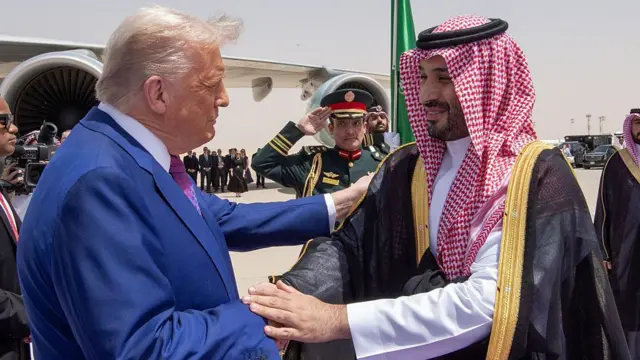Trump’s Landmark Visit to Saudi Arabia Marks a New Golden Era in U.S.-Middle East Relations
Riyadh – In what is being hailed as a historic turning point in regional diplomacy, U.S. President Donald Trump made a strategic visit to the Kingdom of Saudi Arabia, renewing a powerful alliance and ushering in what observers are calling a “new golden age” for both America and the Middle East.
The visit, marked by high-level meetings and landmark policy shifts, has been described by Mohammed Alhamed, Founder and President of the Saudi Elite Group, as a reaffirmation of the Kingdom’s position as the “Capital of Global Peace.”
“This visit rebuilds a true commitment between these two allies,” Alhamed said, highlighting the potential for renewed cooperation in defense, security, and economic development. “It continues the joint mission of making the world a safer place,” he added.
Among the most significant outcomes of the visit is the reported removal of U.S. sanctions on Syria, a move made following a special request by Crown Prince Mohammed bin Salman. If confirmed, this would signal a dramatic shift in U.S. foreign policy in the region, reflecting Riyadh’s increasing influence in shaping regional stability.
The visit also reaffirmed the Kingdom’s ambitious investment strategy, with $600 billion earmarked for American products and industries, spanning defense, healthcare, energy, technology, infrastructure, and even sports. These investments are expected to generate thousands of jobs on both sides and deepen economic interdependence between the two nations.
Trump’s reception in Riyadh, complete with ceremonial grandeur and strategic substance, mirrors the significance Saudi Arabia places on its relationship with the United States. It also reflects the Kingdom’s broader vision of regional diplomacy—one that emphasizes economic partnership, peace-building, and pragmatic diplomacy.
For Washington, the renewed engagement signals a return to trusted allies in the Gulf, while for Riyadh, it’s a clear sign of global recognition of its central role in international affairs.
As Alhamed noted, this visit doesn’t just signal the strengthening of bilateral ties—it may well mark the beginning of a new era of strategic equilibrium in the Middle East.



